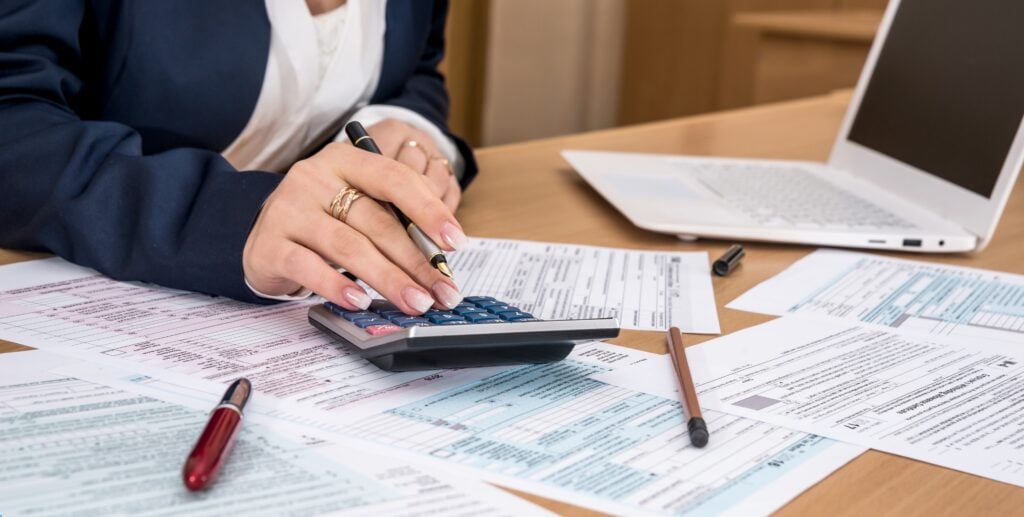The One Big Beautiful Bill has passed, and it could put thousands of dollars back in your pocket. In this episode, we’re breaking down how this powerful piece of legislation could help lower your tax bill and supercharge your returns, whether you’re relatively new to real estate investing or actively scaling your portfolio!
Welcome back to the Real Estate Rookie podcast! Today, we’re joined by Amanda Han and Matt MacFarland from Keystone CPA, who break down the latest tax bill, what it means for rookie investors, and a few of the best tax strategies to implement. We’ll cover things like 100% bonus depreciation, cost segregation studies, and the short-term rental loophole. You’ll even learn about the extended qualified business income (QBI) deduction that benefits many Americans—including real estate investors!
But that’s not all. We’ll also provide realistic examples of how a rookie can double their write-offs, the “marriage loophole” that helps couples maximize their tax savings, and the biggest (and most expensive) rookie tax mistakes to avoid at all costs!
Ashley:Taxes might not sound exciting, but what if I told you there’s a brand new bill that could put more money in your pocket and change how you invest today?
Tony:And today we’ve got two of the best real estate CPAs in the game. You guys might know them. They’ve written several books for BiggerPockets. They’re my personal CPA and good friends of BiggerPockets. But we have Amanda and Matt from Keystone CPA, and they’re here to break down the big, beautiful tax bill, what it means, why it matters, and exactly how rookies can benefit from it.
Ashley:Welcome to the Real Estate Rookie podcast. I’m Ashley Kehr.
Tony:And I’m Tony j Robinson. With that, let’s give a big warm welcome to Amanda Hahn and Matt McFarland. Guys, thanks for joining us today. I appreciate having you both.
Matt:Yeah, thanks for having us, guys. It was fun to be here.
Ashley:So for those who aren’t tax nerds yet, what is the big beautiful tax bill and why is everyone in real estate talking about it right now?
Amanda:Well, first of all, it’s called the one big beautiful bill we are referring to as the tax bill, but the bill actually has a lot of different things outside of taxes as well. That’s what they called it, the one big beautiful, because it’s sort of all encompassing. But what we really love about the one big, beautiful Bill is that for the first time in many years, we are seeing a bill or new tax law that benefits not just real estate investors or large corporations, but it actually benefits a lot of people. Of course, real estate investors is one of them, but just average W2 earners, homeowners and people who are looking to purchase cars and even parents as well. But of course the intersect of all of that with real estate is what’s been super amazing for us, at least as real estate CPAs.
Matt:Yeah, I think people are talking about it because it just passed last month and there was a lot of lead up to it, right? They were talking about it probably the beginning of the year, so that it’s kind of, from our perspective, it’s nice that it actually passed and now we have some time to do some planning for clients and put things into action before the end of the year.
Ashley:Just from a rookie perspective, why should you care about this as a rookie investor with maybe just one deal or planning to purchase your first deal?
Matt:Yeah, I think from, as Amanda mentioned, there’s a lot of things that are impacting real estate investors and just individual taxpayers in general. So sometimes I think there’s bills that are, Hey, they’re just skewed to business owners. They’re just skewed to real estate investors or individuals. But this kind of encompasses a lot of things. So I think the biggest one in there is depreciation expense. I think that’s going to have the biggest impact. Or even just rookie investors too.
Amanda:A lot of rookie investors start out with house hacking. That’s actually one of the things that Matt and I did ourselves as one of our first deals, and with the one big beautiful bill, one of the newer benefits is that if you own a home, regardless of whether it’s a rental or not, it basically four Xed the dollar amount that we can write off as our primary home property taxes. And so if you’re a rookie investor, you’re like, Hey, should I buy a duplex where one unit is going to be my home? The second unit, I might rent it out as a long-term short-term or midterm rental. Now we have potentially much larger write-off because we can always take advantage of the traditional rental related expenses, but even the part now that is used for our primary home, we can maximize our deductions there as well. And of course, like Matt said, the 100% bonus depreciation is I think bringing a lot of eyeballs to real estate, whereas people who are like, should I do real estate? Should I not do real estate? We’re seeing more people getting into the rookie investment as their first property because of the new tax incentive. I
Tony:Definitely want to talk about the bonus depreciation because I think that that does have a big material impact on tax bills for a lot of the folks who are listening right now. But if you guys just think about, and you just touched on one, Amanda, but if you guys think about maybe the four or five other big important parts of this bill that impact real estate investors specifically, let’s just quickly hit what those other maybe important highlights are.
Amanda:Well, I just think in general, one of the goals of investing in real estate is so that we can try to bring down our total taxable income. And a lot of the things in the tax bill, although not specific to real estate or specific to rookies, do provide greater incentives. For example, we mentioned if you are a parent, there’s additional tax credits that are available, or if you’re looking to buy a new car for the first time ever, you can write off a interest expense on your personal vehicle. However, as with many things in the tax world, those come with income limitations. So traditionally for someone who says, Hey, I make too much income to get these tax benefits, well now with the investment of rental real estate, if I wasn’t in real estate before, now I’m getting into real estate that potentially brings down my taxable income, which then allows me to get additional benefits beyond just my initial plan of real estate deductions.
Matt:Another one I was thinking of too is I think there’s a lot of rookies out there that are still working the side hustle. Maybe there are real estate agent, maybe they’re doing fix and flip wholesale and kind of getting into the rental property side of things. But with those active businesses, one of the things that the one big beautiful bill did is it’s continuing on the ability for people to get, we call a qualified business income deduction, QBI, so people can get 20% of their income from their business to be tax-free. So a realtor could make a hundred thousand dollars and only have to pay tax on $80,000. So the nice thing is that the bill has continued that on because there was talk that that was going to expire. So I think that’s something that people can take advantage of when they’ve got Schedule C income, maybe an S corp doing some sort of active income, some sort of active business on the side.
Tony:Yeah, I want to touch on that one because I think that’s one that a lot of folks don’t know about. So Matt, what you just said is that I can basically take 20% off of whatever income I generate in my rental portfolio and only pay taxes on the other 80% that’s left.
Matt:Yeah, exactly. So this would apply to people having an active, it could apply to rental property income as well. Obviously a lot of rental properties, well strategically can create losses, so that wouldn’t apply to the ones with losses. But yeah, certainly if you’ve got a good portfolio going with rental properties and you’re doing it day to day and you’re kicking off a profit of $50,000, you could get 20% of the be tax free for sure.
Amanda:What’s really interesting about qualified business income deduction is this came about in 2017, I want to say, and for many years when we review new clients who come to us, we review their tax returns, it’s something that’s often missed, and we would just chalk it up initially to, okay, it’s brand new. People don’t really know about it. But now that it’s years later, it’s interesting that it’s still something that’s missed, but now that it’s been extended as part of the one big beautiful bill, you do want to make sure if you think this is something applicable, applicable to you, you do want to make sure you’re taking advantage of it. And one of the ways you can check pretty quickly is it’s actually on your individual tax returns. So regardless of whether you’re holding your rentals in an LLC or a partnership, the qualified business income deduction shows up on the first page of your personal 10 40 form. If there’s a line called qualified business income deduction. So you can start there and see if there’s a number. It should be a negative number, obviously, right, because we’re saying that the first 20% is potentially tax free.
Ashley:Hey guys, it’s Ashley. I wanted to pop in here real quick to tell you that managing rentals shouldn’t be stressful. That’s why landlords love rent. Ready. Get to your rent in your account, just two days faster cashflow, less waiting. Need to message a tenant chat instantly in app. No more lost emails or texts, plus schedule maintenance repairs with just a few taps. No more phone tag. Ready to simplify your rentals. Get six months of rent ready for just $1 using promo code BP 2025. Sign up at the link in the bio because new landlords are loving rent. Ready? Okay, we’re back from our short break. Thank you so much for taking the time to check out our show sponsors. So Amanda, do you think you could walk us through an example, say I’m a brand new investor with one rental property, how might my taxes look before and after implementing the things from this bill?
Amanda:Yeah, it’s really interesting. One of the catchphrases we’ve been telling people is after the one big beautiful bill, your tax savings may have more than doubled. So that gives you an idea of the power of the law change. So prior to the change of the one big beautiful bill bonus depreciation was at 40%. And now after the enactment of the bill, it’s now at a hundred percent. So if we just give a very simple example, let’s say,
Matt:Excuse me, sorry.
Amanda:Let’s say you buy a rental property for 130,000 and we say a hundred thousand dollars is the building maybe prior to the bill change. With bonus depreciation, we might expect about $15,000 of first year depreciation if you’re doing cost segregation and just accelerating as much as you can. But now using those same numbers, a hundred thousand dollars in that building, you could probably write off $30,000 or more just in first year depreciation. So you can see the significant difference in tax savings or the tax depreciation amount using one specific rental property.
Tony:You guys mentioned a few different terms in there. If we can, I just want to define some of those. So we talked about depreciation, cost segregation, accelerating. Can we just kind of break each one of those down? So when we talk about depreciation for a rookie investor, what does that actually mean?
Matt:Yeah, so depreciation is probably one of the best things about investing in real estate, rental real estate from a tax perspective. So unlike if somebody was going to go out and buy Google stock or whatever, they buy Google stock, they don’t write off the cost of the stock right now. They don’t even write that off until they sell the stock down the road. But the difference with rental real estate is the IRS does let you take a paper write-off or a portion of the purchase price of you’re building every year kind of due to normal wear and tear. So Amanda’s example, talking about that a hundred thousand dollars building where we’re getting to take, we get a certain amount of depreciation every year that we can use to offset our cashflow from the property. So not uncommon for a rookie investor to get, Hey, I got $3,000 of cashflow in my pocket, but with my depreciation expense on my tax return, my taxable income from that rental is now zero because basically that paper write off is sheltering the cashflow from taxes. So that’s a huge advantage to investing in real estate compared to other investments obviously.
Tony:And then when we talk about accelerating that depreciation, walk us through that.
Amanda:I mean, what we love about depreciation is that not only is it a paper loss like Matt just said, but there’s so much flexibility in how we utilize this concept of depreciation. So the IRS allows us to just take it in a normal standard way. Typically, you write it off over 27 and a half years if we’re talking about residential properties or we could accelerate it. And so that’s the whole concept of accelerate depreciation, which is to say, okay, instead of waiting evenly over 27 and a half years to write off the components of my building, I’m going to write it off faster. And you do so through a cost segregation study. And for those of you, if this is a new term to you, you don’t have to worry. It doesn’t mean you have to become an engineer or do any of that stuff.
Amanda:You simply hire a firm that does cost aggregation, and so you provide them with your property information, generally the address property tax records, probably the purchase closing disclosure. And what they’ll do is they will have engineers on their team to analyze the building. And what they’re trying to do is they’re trying to say, okay, instead of just calling this whole a hundred thousand dollars building, they’re going to help you break out the building into different components like specialty plumbing, specialty electricals, and with those numbers, then your CPA could follow your tax return using faster depreciation because the IRS has a set of law that says certain things, we can write them off or depreciate faster than other items. So from an investor’s perspective, especially for rookie people, I think a lot of people are scared by a lot of these terms and definitions, and what do I have to do? And the good news is you as an investor don’t have to do too much. These are things that are done by a cost egg firm as well as your personal CPA.
Ashley:Now, as a rookie investor that has one property, you’re probably not generating a ton of cashflow to even need to offset it with depreciation and doing a cost egg study. But what if you have a W2 that is very high income? How can you use some of these deductions from the tax bill to actually apply them to your active income?
Matt:Well, I think before we get to that, I think just to your first point kind of bringing it home, it’s not uncommon for, let’s say that you have one of your rookie investors is making a hundred thousand dollars or less. They have the ability to actually generate and use up to $25,000 of rental losses against their W2 income. So it’s not uncommon for us to see somebody who’s just getting in the game, like Amanda was mentioning, house hacking earlier, not uncommon for someone making 90, $95,000 that they can get a 15, $20,000 depreciation expense on their property through doing some bonus depreciation, accelerating some stuff. I mean, that would wipe out 15 20% of their income on their tax bills. So that’s definitely a viable option for people who are kind of just getting started and making under a hundred thousand dollars. Now to your point, once somebody makes kind of over $150,000 has that high W2, that’s when some other tax loss kick in some limitations that we can talk about. But I think there’s opportunities for everybody,
Amanda:And I’ll just say before I answer that question too, is cost segregation. We just gave some numbers and it sounds really amazing. One of the common mistake we see rookie investors make is they’ll go ahead and just get a cost segregation study. Some of those are pretty affordable. You can get one for a couple hundred dollars online. But before you do a cost segregation study, you need to talk with your CPA because what we want to know is whether or not you should do a cost segregation study, right? If your income is too high where your rental benefits can’t offset W2 income, then that might be a scenario where I want to delay doing a cost segregation study into a future year when I can actually use it to offset my W2 income for tax purposes.
Matt:So I think for those people who are making, let’s say over $150,000 in W2 and they are investing in long-term rental real estate on the side or getting started building up their portfolio, they’re still going to want to look at utilizing that depreciation, at least offset the cashflow. Then if they have more depreciation and it can create a loss on paper, then we look at can they or their spouse qualify as a real estate professional? If they can do that, then whatever losses they can generate from their long-term rental real estate can be used to offset deduct against their W2 in the current year, which can provide significant tax savings.
Amanda:It’s what we call a marriage loophole. If you’re working full time, you can’t be a real estate
Matt:Marriage tax advice right here.
Amanda:If you can’t be a real estate professional, then marry one.
Matt:Yes.
Ashley:We actually just had a guest on who talked about how he got started in real estate, and it was because his father was a real estate investor and he kind of mentored him along the way. So we had made that joke of like, oh, so you married into real estate investing and you got to find a wife that has a dad that invests in real estate to get started,
Matt:We tried to copyright realestate match.com, but I think somebody already took it.
Tony:But something that’s important that you guys just highlighted that I think I see a lot of rookie investors misunderstand is just because you generate paper losses from your rental portfolio, that doesn’t automatically mean that you can apply those paper losses against your W2 or other forms of active income. There are certain boxes you have to check, one being qualifying as a real estate professional to be able to take those losses and apply them to your W2 income. But that’s also part of the reason that I think short-term rentals got there are such heavy interest in that space, not only because of the cashflow perspective, but because it’s easier to qualify those paper losses with a short-term rental than it’s to qualify them with a long-term rental. So can you guys talk about the differences between the long-term rental and the short-term rental strategy for applying those losses?
Amanda:Yeah, for sure. So let me first define what real estate professional is, and I think that will help the listeners understand why do we care about all this. So contrary to popular belief, real estate professional does not mean you get a realtor’s license and start selling real estate and showing houses on the weekends, real estate professionals a set of hours that you have to meet in order to get those tax benefits to offset W2 another income. So three major ones. One is you have to have at least 750 hours in real estate. Some people might be not too difficult,
Matt:And this is year by year.
Amanda:The second one, which is the more difficult one for most people is you have to have more time in real estate than your other jobs or businesses combined. So if you’re someone working full-time at a W2 job that’s over 2100 hours, then you’ll have to have over 2100 hours to be a real estate professional. So that’s why we say, okay, if you’re a high income earner, you’re working a full-time W2 job, very difficult for you to become one unless again, if you marry into one or you marry someone who has those profile. And then the third role is you have to meet material participation, which basically is you’re involved with the day-to-day operations of the rental properties, as you can see for someone working full-time, difficult to have more time in real estate than their job. And that’s where the short-term rental loophole comes in because when you invest in short-term rentals, you don’t have to be a real estate professional to use the losses against W2.
Amanda:In other words, we don’t care how many hours you’re working at your full-time job, you don’t have to exceed those hours. And this is why we see a lot of high income earners or just, it doesn’t have to be high income anyone, low income earners, high income earn learners. We got doctors, CPAs, celebrities athletes who use the short-term rental loophole because they can continue doing what they do in their day job or their business and have short-term rentals as almost like a side hustle and still be able to get the benefits as long as they meet material participation hours.
Matt:So as you mentioned, Tony, it’s just with a short-term rental, the tax laws are just different than what the long-term rental laws are. And so it just makes it easier for people who generate losses on their short-term rentals to use those against their W2 and other active income. As Amanda mentioned, you just have to meet with the time you spend on your short-term rentals. You just have to meet one of the material participation tests. Now, one of those is did you spend 500 hours a year working on your short-term rentals? And this could be you and a spouse. This could be one short-term rental. This could be 500 hours over five short-term rentals combined. There’s a lot of flexibility there. If you can’t get to 500 sometimes it could be as little as you spending a hundred hours, and as long as you spend more time than any other single person spent on your short-term rentals, then you can qualify can how? It could be a lot easier to get that. That bar’s a lot easier to cross than 750 hours in real estate or more time in real estate than your other W2 job, which could be 2000 hours.
Tony:And I think that’s the part that I really want Ricky’s to understand is that not only is the bar a little bit lower, but there’s also multiple ways that you can get over that bar. So just make sure that for those of you that are watching and really want to try and reduce your W2 tax bill, how much you paying your W2 job? These are the kind of questions you should be asking to your CPA to make sure you’ve got the right strategy because I think a lot of folks aren’t even aware of this, and if their CPA isn’t well versed in the short-term rental side, then maybe they’re not even giving them that direction. So I think that’s the goal of this conversation is to point ’em in the right way.
Amanda:Well, I will say that the short-term rental tax loophole is probably one of the most frequently seen mistakes for me as a real estate CPA, because I try to post a lot of content on social media about the short-term rental loophole, and inevitably, I will get a lot of people who comment and say, this is illegal. There’s no way you’re working in your short-term rental more than your job. My CPA says, I am not a real estate professional. So here’s the key for all of you guys who if you are already investing in short-term rentals or you want to, and you’re talking to your CPA, here’s a warning flag to show you if they don’t understand it. So if you’re telling them about the short-term rental loophole and they mention anything about real estate professional status, that means you’re working with the wrong person, right? Because we said for short-term rentals, you don’t need to be a real estate professional if they ask you anything about your income level or say you make too much income, Tony, you can’t benefit from it. They’re also referring to real estate professional. Or if they ask you about how many hours are you working at your job, that’s the third warning sign that they’re not understanding what the loophole is and how it works.
Ashley:So that’s one red flag with this new bill. Are there other red flags or different ways that maybe someone’s CPA or even just the investor themself could interpretate some of these wrong and make some bad decisions here that aren’t actually maybe legal to do?
Matt:I mean, outside of the bill, I just in general, I mean Bill or not, I think it’s the people who kind of make the mistake of trying to do it all on their own. They hear about something on a podcast or they hear somebody speak somewhere and they, oh, I’m going to go do a cost like manage mentioned. I’m going to go do a cost x study. Well, let’s slow down. Let’s put the brakes on. Can you benefit from a cost X study? Do you need one? What’s your income going to be this year? What’s your plans going forward? What are your goals? Those are all the kinds of questions you should be having an intelligent conversation with your team of advisors, your tax person included. So I think the other mistake would be waiting until March or April next year when a lot of people, I think still unfortunately, Hey, I’m going to talk to my CPA once a year in April when I drop on my tax stuff, and then let’s talk about last year. What can I do? It’s like, well, there might be one or two things you can still do, but there’s a lot more opportunities now if you have that conversation at this point in the year.
Amanda:I think one thing for everyone, just to kind of keep on top of mind with respect to the new one big, beautiful bill, there are a lot of benefits. We are talking real estate specifically with 100% bonus depreciation. We still get up to 20% of our income potentially tax free if it’s qualified business income for rentals and things like that. But the IRS just came out and said they are not going to change withholding tables as a result of the new tax change, which is what we were hoping for because we know everyone’s getting more benefit. Will you automatically change the withholding table so that for people who still have a job or run their own business, the withholdings are being adjusted automatically right through the change in how the tables are working. So they recently came up, I think last week or two days ago and said they’re not going to change it.
Amanda:And so as a rookie investor or just any investor or taxpayer in general, if you think any of these benefits apply to you to the extent you have a W2 job and you are withholding taxes, make sure that you are talking to your CPA about whether I should change my withholdings or adjust my withholdings, right, because I’m buying new rentals or because now we have a hundred percent bonus depreciation. Because what we always want to do is we want to keep more money in our pocket every month, rather than waiting until next April to then potentially get a big refund, right? As good as a big refund sounds. It’s basically an interest free loan that we’ve given to the IRS.
Tony:I just want to comment on one thing too, because you guys are given a lot of great advice, and Amanda, you talked about people coming at you in the comments on social media, and I think social media, if it’s not coming from a truly knowledgeable CPA who knows and understands real estate investing, you can get a lot of bad information. And I saw a reel the other day of some guy who’s a real estate investor, and he was talking about how if his contractors ask him to get paid in cash, he’ll pay them in cash, but then just create an invoice that’s higher than the amount that he paid in cash. And then there was another CPA who was reacting to that, and she was like, this is literal tax fraud. So that’s why we bring on folks like Amanda, Matt, to give you guys the real deal legal
Matt:Way. Lemme put my fraud out there in the open internet,
Tony:That’s great. It was the craziest thing I’d ever seen. I was like, I don’t even know if he knows what he just said. Right? But I think that’s the point here is that if you don’t go to the right source, you can end up seeing something online and thinking like, okay, this is great advice. Let me just lie and say that I overpaid this contractor by this amount and you end up going to jail. So I want to talk a little bit more because Matt, you alluded to this as well of, Hey, we can’t chat in April about how to make last year’s taxes look better. We need to start that conversation sooner. So I want to get into what Ricky should be doing, the top action steps they should be focusing on to get ready for the end of this year. And we’ll cover that right after work from today’s show sponsors. Alright guys, we’re back here with Matt and Amanda from Keystone CPA. And guys, we’re recording this in the summer of 2025. As we think about the year end coming up, what are the top two or three things that Rick investors should be doing within their and in conversation with their CPA to give themselves the best chance possible of reducing their taxable income going into next year?
Amanda:One of the best things to do for anyone, not just rookie investors, is to make sure to take some time to do tax planning and tax planning. I know for a lot of people, sounds pretty scary, but tax planning, I mean, as you guys know, right? It’s really just a conversation. It’s a conversation about what has happened already this year and what do we expect to happen for the rest of this year? Because it’s in those conversations that your CPA will put their thinking hat on and advise on certain things. Hey, for the rest of this year, I think I’m going to make another $300,000. Well, which entity is it going to be in? Is it rental income? Are you splitting it with another partner? And it’s in these conversations that your CPA or accountant can help guide you on? These are the top three, four or five things that we need to make sure we do, move money around, set up entities, close down entities, buy new properties or rehab an existing property so that we can match up our expenses and depreciation with the income that we’ve already generated so that by the end of the year, our numbers end up where we want them to be.
Amanda:One of the things Matt and I joke about is for sports, at least I say, I don’t care what the sports score is during the game, all I care about is what are the numbers at the end of the game when the clock runs down to zero? So that’s a similar concept, and we talk about year end tax planning is between now the end of the year we’re working with all the numbers and the transactions to say, okay, by year end then now we have the optimal number of income matched with expenses, so we pay less tax next April.
Matt:So obviously that’s debatable whether that doesn’t matter watching a sports game that you don’t have to watch it until the end. I mean, obviously we’re not going to go that far. But I think the other thing too is we’re going to have a lot of clients being aggressive and purchasing more properties between now and year end just because of the bonus depreciation. So I think for everyone out there, I think the idea is sit down and have that conversation because you can quickly decide are you somebody that’s got a long-term rental portfolio or you’re trying to build one, or maybe you’re shifting to the short-term rental loophole. How do I utilize one or both of those strategies in my situation? And it’s better to have that conversation now so you can tweak things between now and your end versus, Hey, I’m in December 1st, let’s have that conversation like, oh crap, I’ve only got three weeks left. So I think just being proactive and getting on the calendar with your CPA or tax person so that you can make those tweaks and pivots as need be between now and year end.
Tony:Yeah, it sounds like in a nutshell, the mistake that a lot of rookies make is waiting too long to engage their CPA in productive conversation about what they should be doing. And we can’t effectively strategize our taxes looking backwards. And it seems like that’s what a lot of Ricks trying to do is they go and file their taxes and say, okay, well what can I do now to reduce this when in reality it should have gone the other way around? Where as we look forward, what are the things I need to plan for in order to do that? And I think that’s the mindset shift that a lot of rookies need to make is obviously working with someone who, to your point earlier, Amanda isn’t spitting out some of these red flags to show they don’t really know the tax code as it relates to real estate investors. But then second is making sure that once you find that person, you’re giving them all the information they need to give you the right strategy in return.
Amanda:And I think a common rookie mistake too is thinking that tax planning is not for me, or tax planning is not for me yet because I’m a rookie, because I’m starting out, I don’t make enough money, I don’t own enough rental properties. That’s a common mindset for our clients who are new coming into us. And a question people ask me or us a lot is, how much money do I have to make or how many rentals should I own before I start doing tax planning? And the answer is, it’s not about either one of those things because you can be making 5 million a year of W2 income if you don’t plan to own real estate, if you don’t plan to invest in anything, you’re just going to spend all that money, then tax planning is not for you because there’s not much you can do to reduce taxes if you’re just going to spend all of that money on personal things.
Amanda:But you could be someone that’s brand new starting out like Mazda, if you’re making 70, 80, $90,000 of income your first rental, it’s a house hack duplex, there are a lot of things that could be done to save on taxes or even wipe out your taxable income. So it’s not about how much income or how many properties, it’s about what is your plan in real estate. Is that something you plan to start, grow and scale or exit, right? Or is it not really part of the equation of what I’m even looking at, right? I’m just in the spending phase of my life.
Ashley:Well, Amanda, I think you described me perfectly as a client coming to you, not taking this serious soon enough and waiting until I built my portfolio. We were at BP Con one year, and I’m sitting by the pool on my computer gathering my tax information because my taxes were due in two days. So I was definitely one of those people that did not do any kind of tax planning or anything like that. And I waited too long, and eventually it just all caught up to me to be this big mess that I had to try and sort out and just get organized and gain control. So now I have everything prepared and ready for my CPA this year when I file my taxes.
Amanda:Yeah, I think it’s just something, I think people like to avoid the thought of taxes and delay it until the last. But yeah, for a lot of people it’s like you have to feel the pain, right? Once you have a very painful experience of working on taxes by the poet at BP Card,
Ashley:Where did I put that closing statement from that property searching through old emails. Well, Amanda and Matt, thank you so much for joining us today. We really appreciate you taking the time to come and enlighten us on Tech Strategies for 2025. Where can people find out more information and reach out to you?
Matt:Best place to find us. Our website is keystone cpa.com. We have a lot of free information, free resources on there, so I would definitely check that out as a good starting point.
Amanda:Yeah, I mostly found on Instagram as well as YouTube as Amanda Han CPA, and we did write two books for BiggerPockets. I think you can find them at the BiggerPockets Bookstore and also on Amazon.
Ashley:Well, you guys, thank you so much. We really appreciated you coming on today. I’m Ashley. He’s Tony, and we’ll see you guys on the next episode of Real Estate Rookie.
Help us reach new listeners on iTunes by leaving us a rating and review! It takes just 30 seconds and instructions can be found here. Thanks! We really appreciate it!
Interested in learning more about today’s sponsors or becoming a BiggerPockets partner yourself? Email [email protected].

























